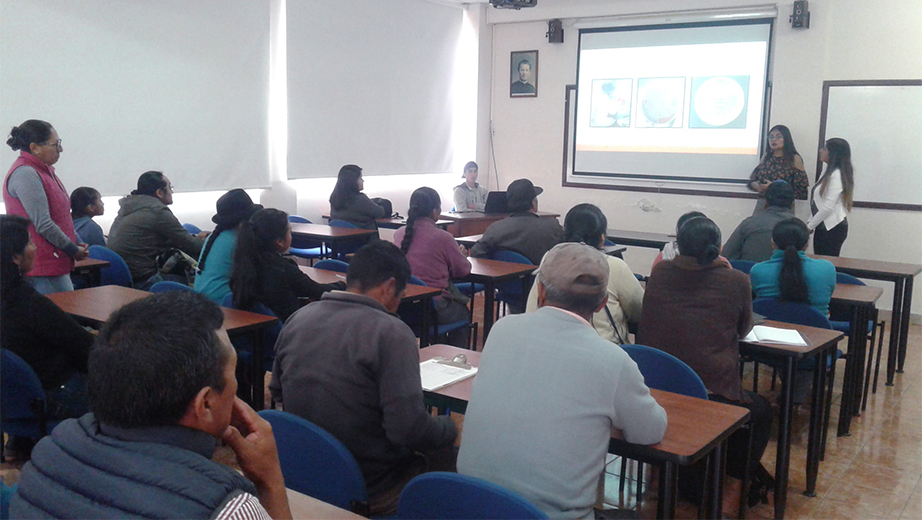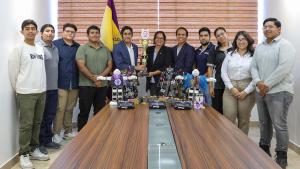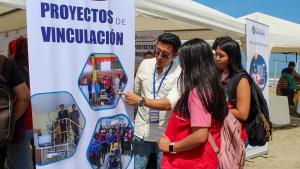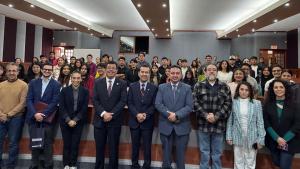Noticia
Researchers from the NUNKUI WAKAN research group presented their study on bovine mastitis

Milk producers of bovine origin in the area of Cayambe and Pedro Moncayo attended the presentation of the results of research carried out by UPS which determined the prevalence of bovine mastitis, the etiological agents that cause it and its resistance to antibiotics. The latter aspect is of vital importance considering that the Ecuadorian livestock sector is making an indiscriminate use of these products.
On February 15, professors Nancy Bonifaz and Janss Beltrán, researchers of the NUNKUI WAKAN group, with the support of students Andrea Valdivieso and Guadalupe Ballesteros of the Biotechnology Engineering in Natural Resources undergraduate program (Ingeniería en Biotecnología de los Recursos Naturales), presented the results of the project "Study of the epidemiological problem of bovine mastitis" to milk producers.
This research provides valuable information for prophylaxis and treatment of mastitis, and will benefit approximately 30,000 milk producers from Cariacu, Pesillo, Puliza, Moyurco, Paquiestancia and the San Mateo cattle farms of Cayambe, El Chaupi and La Alegría in Pedro Moncayo which produce around 250,000 liters per day.
For small and medium milk producers, bovine mastitis is one of the main health problems, which in addition to causing a decrease in the production and quality of milk, it generates an increase in production costs due to the treatment and losses of animals that cannot be healed.
Contenidos Relacionados
Contenidos Relacionados
Noticias Relacionadas
Noticias Relacionadas





Follow us
Follow us